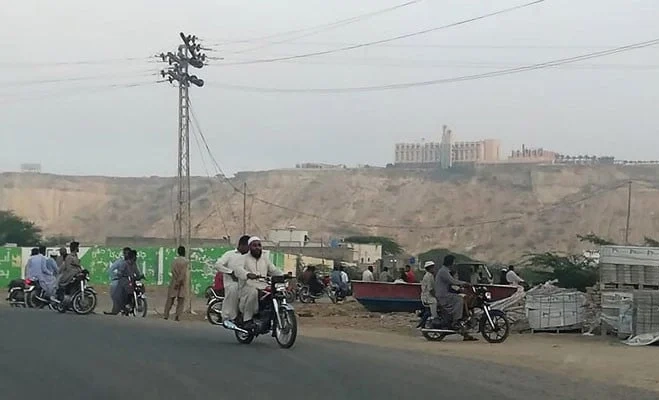

Gwadar port city remains under government clampdown (Photo: Twitter)
International human rights organisation Amnesty International has condemned Pakistan for its crackdown in the port city of Gwadar and urged it to restore people’s fundamental freedoms. In a series of Tweets on Tuesday, Amnesty International South Asia said “the imposition of Article 144 in the name of public security should not become a pretext for more human rights violations”.
Pakistan had in the last week of December launched a violent crackdown on the peaceful protests led by Gwadar Rights Movement (Haq Do Tehreek) leader, Maulana Hidayat-ur-Rehman, who is also the leader of the Jamaat-i-Islami (JI) in Balochistan. The Baloch people, under the leadership of Rehman, have been protesting for basic rights like access to the Arabian Sea for fishing as well as regular water and power supply.
Amnesty has urged Pakistan to reverse the imposition of the emergency on Gwadar under which the government has banned public gathering of people under article 144. Highlighting the ban on mobile telephony and internet communication, the human rights organisation says: “Amnesty International is concerned that both the internet ban and emergency law will serve as a springboard for further crackdown on people’s fundamental freedoms, including freedom of expression, peaceful assembly, right to personal security and freedom from arbitrary detention”.
The international human rights organisation says that disruptions caused by the ban on telephone and internet services “are neither necessary nor proportionate, and inhibits the ability of the people of Gwadar to communicate, access information, seek safety and work”.
The Gwadar Rights Movement by Rehman was first organised around October 2021 with women and children as active participants. The protesters ended their protest in December 2021 after signing an agreement over their demands of access to the Arabian Sea for fishing, opening up of the Iran border for trade, eliminating the narcotics trade from the province as well as removing security checkpoints which impede the movement of local residents.
After waiting for a year, Rehman restarted the movement saying that the government did not fulfil their demands. In December 2022, he even gave a call for Chinese nationals to leave Balochistan as the local community holds China responsible for their economic exploitation.
For Pakistan, its largest province Balochistan remains under siege with the Pakistani Army engaged in war-like operations against Baloch rebels who have carried out big-time hits against the security forces.
In a groundbreaking study, researchers from McGill University have identified nine biological markers in the…
India, in a firm and unequivocal statement at the United Nations Security Council (UNSC), accused…
External Affairs Minister S Jaishankar shared his remarks on how India and Germany can upgrade…
Germany has come out resolutely behind India and its fight against terrorism under Operation Sindoor.…
Baloch leader Mehran Marri has accused Pakistan of unlawfully occupying Balochistan since 1948, transforming the…
The Trump administration announced on Wednesday that it will continue its efforts to prevent advanced…